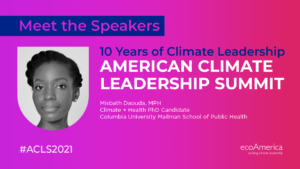Want more clean energy? Focus on people, not technology
To prevent pipes from freezing, set the thermostat in your house no lower than 55°F, an article tells me.
I set the temperature to 55°F, and scratch the last item on my to-do list, finally ready to leave for the holidays. As I am about to step out, I turn around and raise the temperature to 60°F— I had almost forgotten about James! Named after James Baldwin, he is my favorite houseplant. Native to West Africa, he is at the mercy of my energy use decisions as he tries to survive New York City winters.
This scenario, though admittedly silly, points to a key problem that researchers in climate, energy, and health grapple with: decisions around household energy use are complex and malleable. Understanding energy-related decision-making is an aspirational yet challenging goal because such a broad range of factors are at play. Such decisions depend on money, accessibility, and preferences; they are affected by availability, climate, and infrastructure; they are molded by habits, culture, history, and relationships with loved ones. Unfortunately, most home energy transition programs are designed around one-size-fits-all approaches that at best consider only a handful of these factors.
If we are to leverage the household energy sector’s potential to mitigate climate change and protect health, we need to acknowledge that adoption of new technologies and behavior change depend on a full understanding of the end users’ needs, beyond simple thermostat settings. Too often, however, society simplifies and labels people prematurely, to the detriment of truly comprehensive and effective solutions. It often seems as though the standard approach to problem-solving is not to embrace complexity but to reduce it by creating categories.


I learned this firsthand through my struggle to define my identity after immigrating to the U.S. Born in Senegal to a Beninese father and a French-Togolese-Malian mother, I have consistently re-adjusted the way I define my identity depending on the people, culture, and legacies surrounding me. Throughout middle and high school in Senegal, my Beninese identity took center stage, explaining away my subpar ability to speak Wolof. Later, having moved to France, I carried my French passport around to prove my legitimacy in a nation that refused to accept its past. Today, I have the same feeling of perpetually needing to fragment who I am as I attempt to position myself within American society. For example, I tell people that I am a French native speaker when asked about my accent, but while this label offers an answer to the immediate question, it does not fully reflect my heritage.
As an energy and health scientist, I strive to ensure that my research and advocacy does not replicate the restrictive nature of such labels. I use the term “desirable” to describe household energy transitions that meet the needs of the communities I work with, protect their health, and reduce harm to the environment. I anchor my work around such transitions in the belief that “desirable” means one thing for a given community and something completely different to another community.
The only way to find out the context-dependent meaning of “desirable” is to refrain from presenting target communities with preconceived solutions arising from a fragmented understanding of their circumstances. If we fail to do so, we risk blinding ourselves to crucial societal, cultural, and individual dynamics that might dictate whether or not households adopt clean energy options.
To read the full essay visit: https://www.ehn.org/amp/clean-energy-solutions-2651286668
Misbath Daouda is a Climate and Health PhD candidate in Environmental Health Sciences at the Columbia Mailman School of Public Health. She is also a featured speaker at the 2021 American Climate Leadership Summit.


This essay is part of “Agents of Change,” an ongoing series featuring the stories, analyses and perspectives of next generation environmental health leaders who come from historically under-represented backgrounds in science and academia. Essays in the series reflect the views of the authors and not that of EHN.org or The George Washington University.